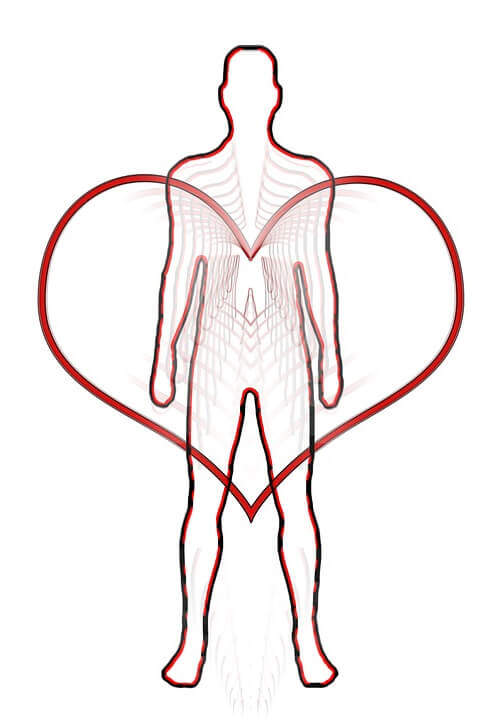Holistic Medicine Definition
The
term "holistic medicine," or holistic medicine, is generally referred
to as different concepts of medicine, in which not only individual parts
of the body or individual ailments are considered, but also the human
being as a whole. In this respect, all physical and psychological ailments should be taken into account in the context of a treatment.  However, the concept of "health" can also be defined in accordance with the definition of the World Health Organization. Health is therefore a condition in which a person is well off, both physically, mentally and socially.
However, the concept of "health" can also be defined in accordance with the definition of the World Health Organization. Health is therefore a condition in which a person is well off, both physically, mentally and socially.
 However, the concept of "health" can also be defined in accordance with the definition of the World Health Organization. Health is therefore a condition in which a person is well off, both physically, mentally and socially.
However, the concept of "health" can also be defined in accordance with the definition of the World Health Organization. Health is therefore a condition in which a person is well off, both physically, mentally and socially.
In
medicine and care, two different approaches are finally distinguished:
On the one hand, the holistic approach and, on the other, the pragmatic
approach.
Approaches to holistic medicine
The above approaches to holistic medicine can be characterized as follows:
Holistic approach: What is it?
The
holistic approach basically assumes that the properties of isolated
sub-areas cannot be used as an explanation for the properties of a
whole. A human being is accordingly seen as being with characteristic biological, psychological and social characteristics. Mental factors thus also play a role in the state of health.
Pragmatic viewing
In the pragmatic view, on the one hand, the situation is similar. Various areas of concern should be linked and not only individual aspects should be looked at in particular. On
the other hand, the approach explicitly aims at treatment, focusing not
only on the mere treatment of a disease, but above all on the treatment
of a sick person.
Therapeutic
This results in a wide range of possible methods. This
is manifested by many different approaches to alternative cures, but
also through disciplines such as psychosomatic medicine. It is precisely the latter specialty that is therefore often referred to as holistic medicine. Above
all, however, the individual history of a patient, from which
connections with current pathologies are to be derived, is particularly
important. Holistic medicine and its various
treatment methods are not only looking for disease-causing influences in
the life or environment of patients. In the same way, it is also necessary to look for health-promoting factors, which may be strengthened.
Medical cybernetics
In
medical cybernetics, system-theoretical, news theory, conneftionist and
decision-making analysis concepts for research and clinical medicine
are applied. Here, too, the aim is to capture and understand the connections of many phsysian and medical systems. Cybernetics
is a particularly modern approach to holistic medicine and involves the
identification of physiological dynamics in healthy as well as diseased
organisms in the body.
Does holistic medicine make sense? Applications
Of
course, certain ailments are curable even without holistic medicine –
in some cases, there would not be enough time to question all influences
to decide on the right treatment. But holistic medicine should therefore not be dismissed as hocus pocus. Especially
in the case of usual or recurring everyday complaints, it provides
approaches that can lead to a long-term improvement in the state of
health. These include:
- Allergies
- Counterfeit for certain infections,
- Skin
- Respiratory diseases and, for example,
- Migraines or headaches.
Alternative medicine: Holistic medicine is not homeopathy
As you can see, holistic medicine focuses on people. This approach requires a view of the patient at different levels and including the history of the disease.
Falsely, holistic medicine is often equated with alternative medicine such as homeopathy. This can be the same as traditional conventional medicine in treatment methods. Alternative
medicine is a collective name for different treatment methods that
differ from conventional medicine in such a way that it is a natural
medicine, body therapy or relaxation procedure as an important component
in the treatment. Take in.
Holistic dentistry
Similar to holistic medicine, holistic dentistry is the same. In this field, too, consideration should not be limited to the oral cavity and the human being as a whole should be viewed. Many chronic diseases and ailments begin in the mouth due to disorders on the teeth or jaw. This can lead to serious and painful strains on the entire body.
 In holistic dentistry, therefore, the whole organism is also considered. In many dental practices, this is already used as an important addition to conventional methods.
In holistic dentistry, therefore, the whole organism is also considered. In many dental practices, this is already used as an important addition to conventional methods.
A special form of holistic dentistry is the so-called anthroposophical dentistry. This is an integrative medicine that combines scientific and conventional medicine with scientific knowledge. This
means that the psyche and body also play a role in the treatment and
which causes this type of dentistry to be very complex and different.
Post a Comment
asdfghl;'